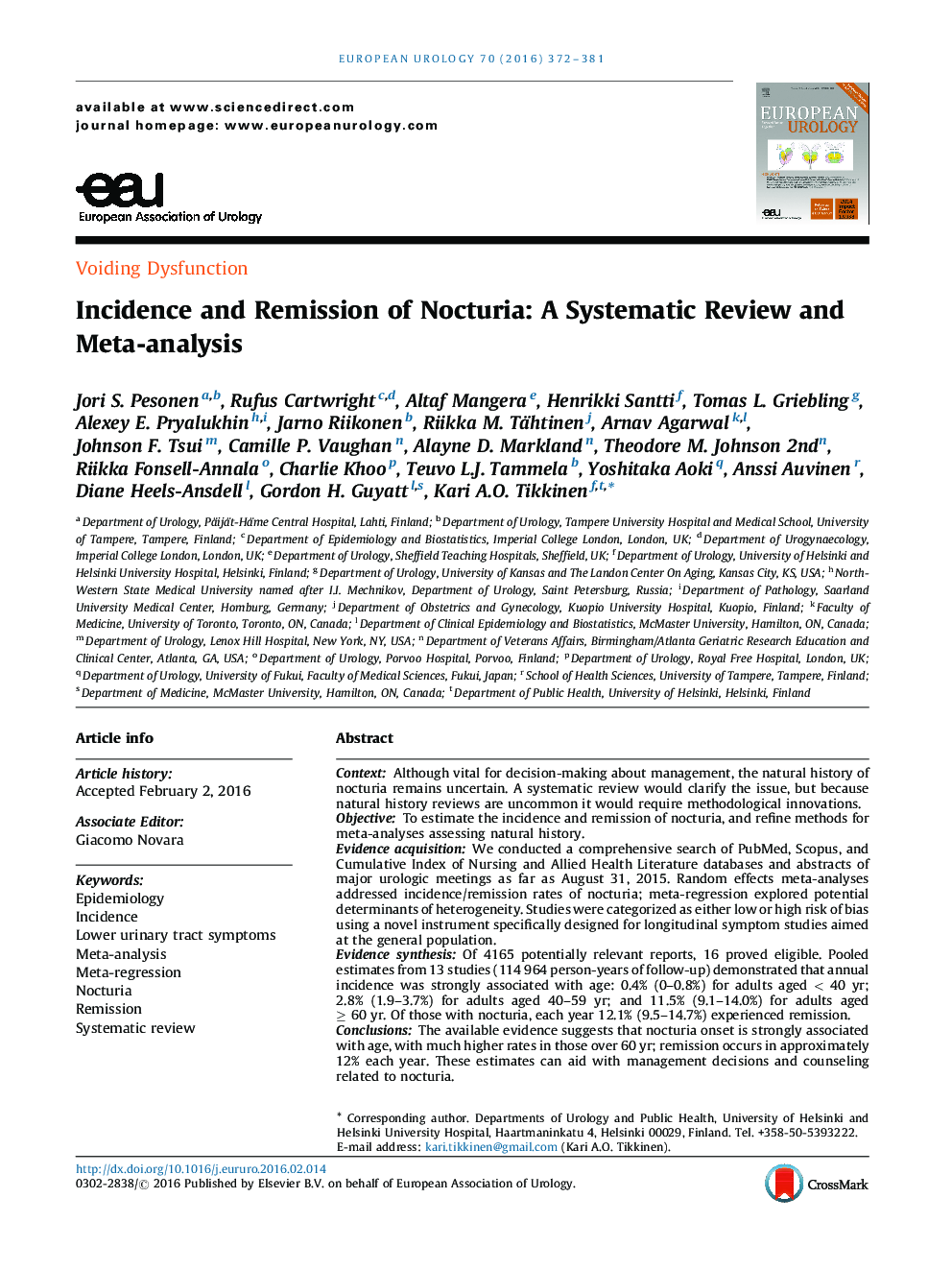| Article ID | Journal | Published Year | Pages | File Type |
|---|---|---|---|---|
| 6175753 | European Urology | 2016 | 10 Pages |
ContextAlthough vital for decision-making about management, the natural history of nocturia remains uncertain. A systematic review would clarify the issue, but because natural history reviews are uncommon it would require methodological innovations.ObjectiveTo estimate the incidence and remission of nocturia, and refine methods for meta-analyses assessing natural history.Evidence acquisitionWe conducted a comprehensive search of PubMed, Scopus, and Cumulative Index of Nursing and Allied Health Literature databases and abstracts of major urologic meetings as far as August 31, 2015. Random effects meta-analyses addressed incidence/remission rates of nocturia; meta-regression explored potential determinants of heterogeneity. Studies were categorized as either low or high risk of bias using a novel instrument specifically designed for longitudinal symptom studies aimed at the general population.Evidence synthesisOf 4165 potentially relevant reports, 16 proved eligible. Pooled estimates from 13 studies (114 964 person-years of follow-up) demonstrated that annual incidence was strongly associated with age: 0.4% (0-0.8%) for adults aged < 40 yr; 2.8% (1.9-3.7%) for adults aged 40-59 yr; and 11.5% (9.1-14.0%) for adults aged ⥠60 yr. Of those with nocturia, each year 12.1% (9.5-14.7%) experienced remission.ConclusionsThe available evidence suggests that nocturia onset is strongly associated with age, with much higher rates in those over 60 yr; remission occurs in approximately 12% each year. These estimates can aid with management decisions and counseling related to nocturia.Patient summaryWe reviewed all previous studies of progression of night-time urination (nocturia). We found that in any given year 0.4% of adults aged < 40 yr, 3% of adults aged 40-59 yr, and 12% of adults aged ⥠60 yr will develop nocturia, while overall 12% of those with nocturia will improve. These findings may be helpful in making decisions about coping with or treating nocturia.
